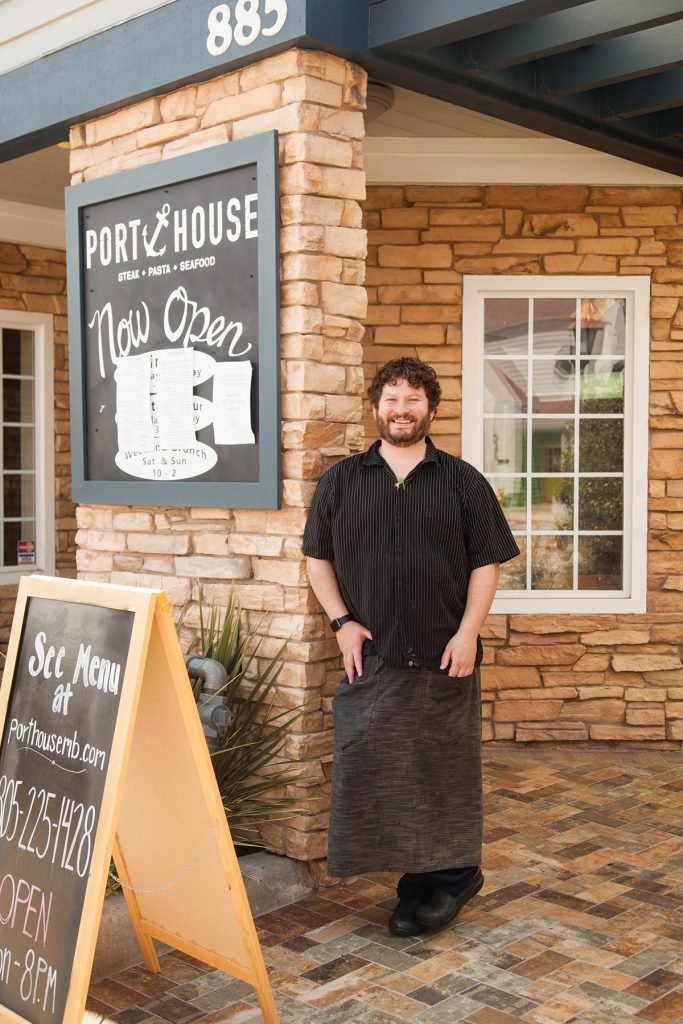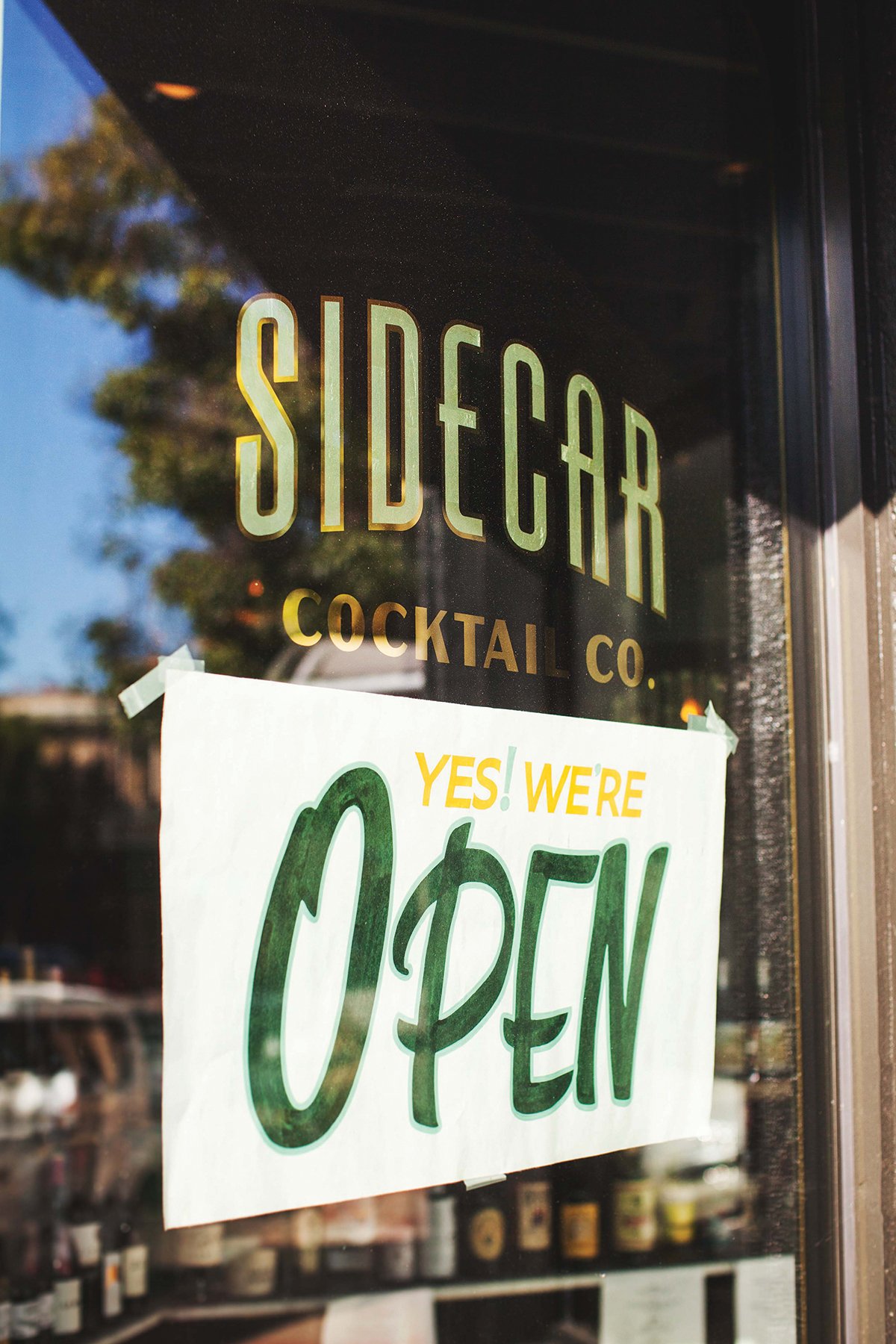
How COVID-19 Hit SLO County’s Food
COVID-19 has ensured that it be a tough few months for some of us, and a terrible few months for those in the restaurant industry. Robin Wolf, an Edible Magazine, San Luis Obispo & Wine Country contributing industry writer and full-time award-winning mixologist at The Hatch Rotisserie & Bar in Paso Robles, has been in the thick of it all, as she witnessed, first, restaurants receiving an order to keep 6-foot gaps between all tables, and then just days later, the banning of all dine-in service, essentially eliminating hope of profitability for most, if not all, establishments. For some restaurants and bars, there’s no surviving this setback. The weight of the pandemic is felt hard by the hospitality industry, which is hemorrhaging jobs and revenue. According to the National Restaurant Association, 44 percent of restaurants across the country temporarily closed their businesses, 3 percent permanently closed, and 11 percent projected they’d have to close for good within the next month. The association also estimated that 3 million restaurant workers were laid off in the first three weeks of March — about one-fifth of the entire U.S. workforce. Here, Robin describes what she witnessed, and how some colleagues have taken a road less traveled.
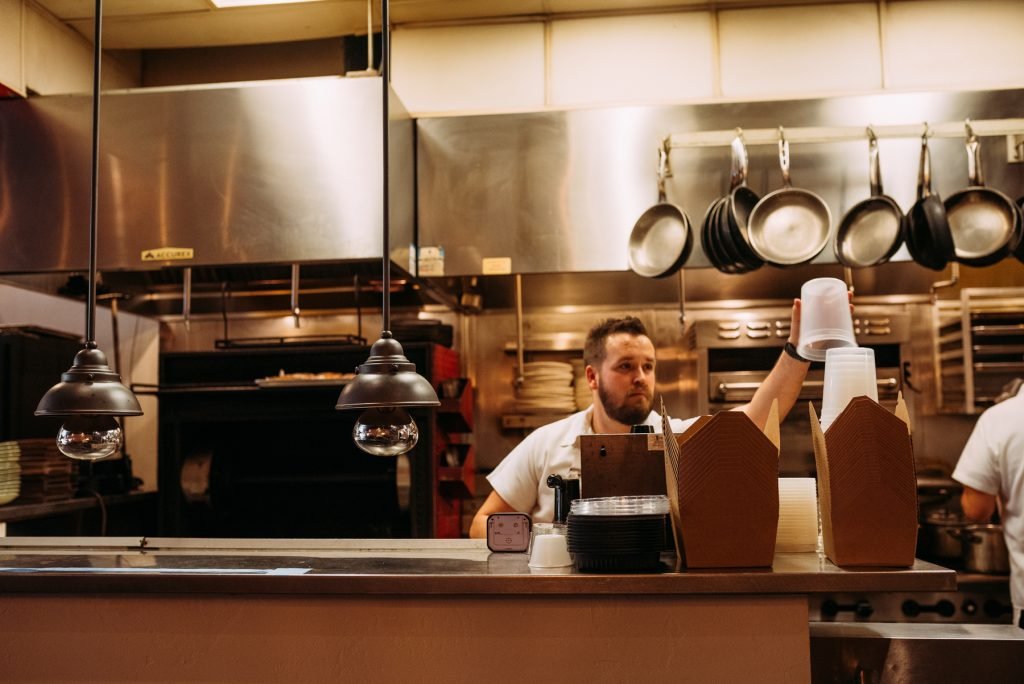
Across the country, as bars and restaurants are pivoting to take-out and delivery models, or shuttering entirely, the restaurant industry’s 15.6 million workers are facing a daunting new reality. I know, because I’m one of them.
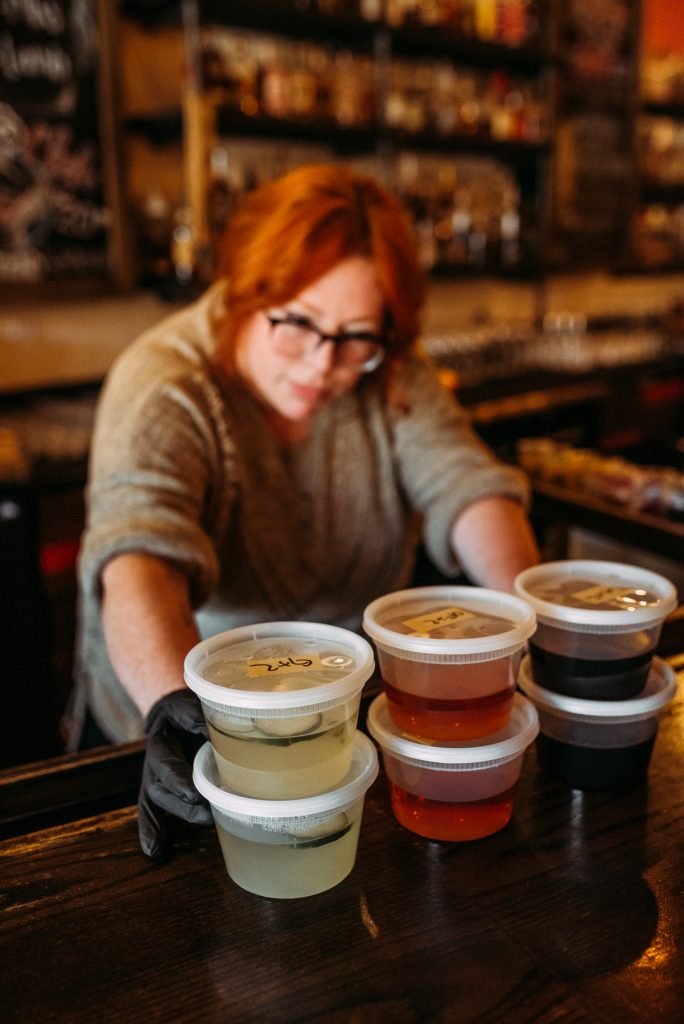
For the past 20 years, I have earned my living serving others. The average American eats out 3-4 times a week, be it a bagel for your breakfast, a pint at the neighborhood locale or a special occasion dinner at your favorite restaurant. We are a part of your daily life. The economic impact of COVID-19 on hospitality industry employees is nothing less than devastating. We cannot work from home. And those who are fortunate enough to qualify for unemployment benefits will see their income reduced to a fraction of what it was. Many small, family-owned bars and restaurants will not make it to the other side of this.
Locally, the Central Coast is in trouble. As a community, we depend on tourism. It supports our infrastructure and celebrates the life we all love here. It is an expensive place to live, even in flush times, as we all know. I love to live here, so I fight to live here. Many of my colleagues in the service industry have no financial safety net, and very soon won’t be able to pay rent, afford groceries, care for their children.

But I am not one to sit back and wait. Along with others who pour your drinks and invite you to our table, I will fight. I am not alone. To combat these setbacks, local businesses are embracing their creativity and fortitude in astounding ways. While these measures are essential to keeping the industry’s workers afloat temporarily, they don’t address one of the heaviest questions weighing on bar and restaurant owners: Will my establishment survive this?
When bars and restaurants in some cities and states were granted permission to serve booze to-go thanks to government leniencies, it was a sign of hope for many. California, Colorado, New York and Texas are among the states that jumped on board (there are 12 as I writing this), and upon receiving the news, bar programs sprang into action to reshape menus, figure out logistics and come up with a game plan for social media announcements and advertising to draw attention to their new offerings. Of course, these new waivers didn’t come without rules and restrictions. Often, they call for the drinks to be served in a sealed container, and most of the time, it’s been stipulated, drinks must be sold with food. Good news for restaurants with bar programs, not so much for your favorite dive.
]If you’ve ever visited The Hatch Rotisserie & Bar in Paso Robles, you know the usual struggle is scoring a table on Fried Chicken Night. “We opened in June of 2015, and 2020 was set to be a banner year with all the incredible national and international press Paso Robles has received in the past few months. We were rolling out the tourism welcome mat as it all came to a halt,” shares Maggie Cameron, co-owner. She and her partner Eric Connolly are not only focused on keeping The Hatch afloat with “Cocktails and Comfort Food” pick-up curbside, but they also have a new venture in the works as well. “We signed a lease on the space right next door to The Hatch and were deep into the planning phase for Della’s, our new wood-fired pizza and cocktail joint. Eric and I had some tough conversations about the fate of Della’s but ultimately decided to forge ahead and submit our building permits.

If our funding falls through due to this crisis, we might be opening up with a wood-burning oven and a few folding tables, but we’ve decided we’re okay with that. Restaurants aren’t meant to be temples.” Currently, with two kiddos under the age of five, The Hatch is looking more like a makeshift school at times. “Eric and I know how lucky we are. We have a lot of local support plus we can lean on one another when we need to make big decisions quickly. When we look back on this period of time I think we will have a lot to be proud of”
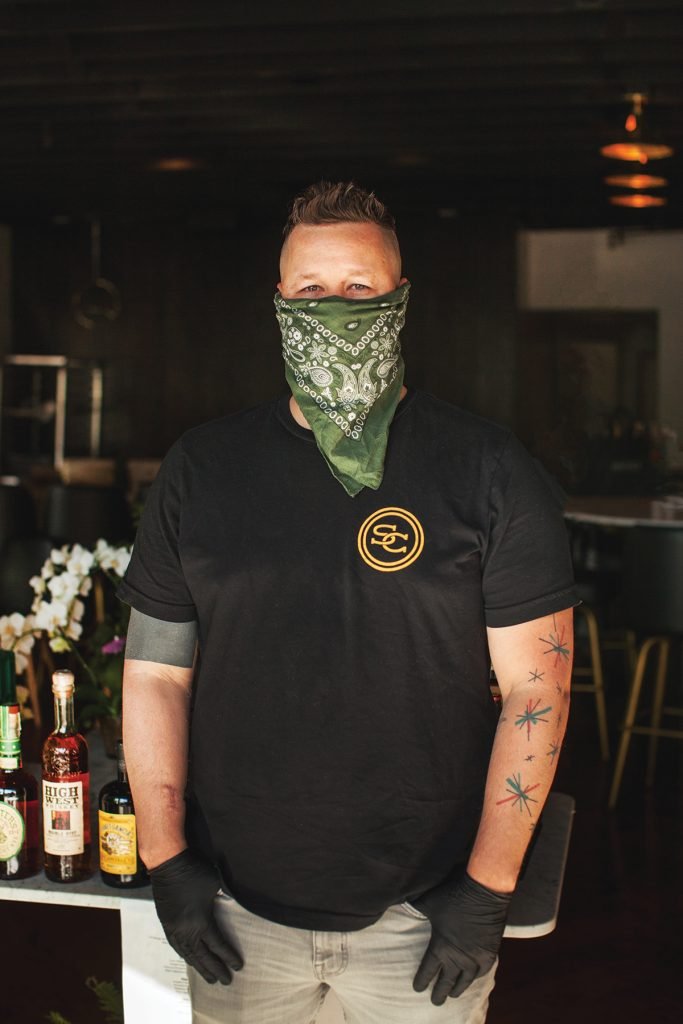
Less than two weeks after completing a move into their newly tricked out space, Sidecar Cocktail Co. was forced to shutter the night before one of the biggest money making holidays in the bar industry, St. Patrick’s Day. So, what’s a local cocktail guru/bar owner to do? For Josh Christensen, “we’re in the same boat as everyone else. No one knows how long this is going to last nor do we know or can we understand the depth of the fallout that is going to come out of all of this. During this time we’ve tried to put our energy into becoming more creative. … The ability to pivot is crucial in life and that’s what we’re trying to do right now.” That shift includes batching their house-made cocktails to-go. Folks can pick up food, cocktails, even bottles from their bar stock. Keeping the positive energy going, Josh is looking forward. “Now we’ll have a pretty sweet excuse to have another grand opening party,” he says, with hope.
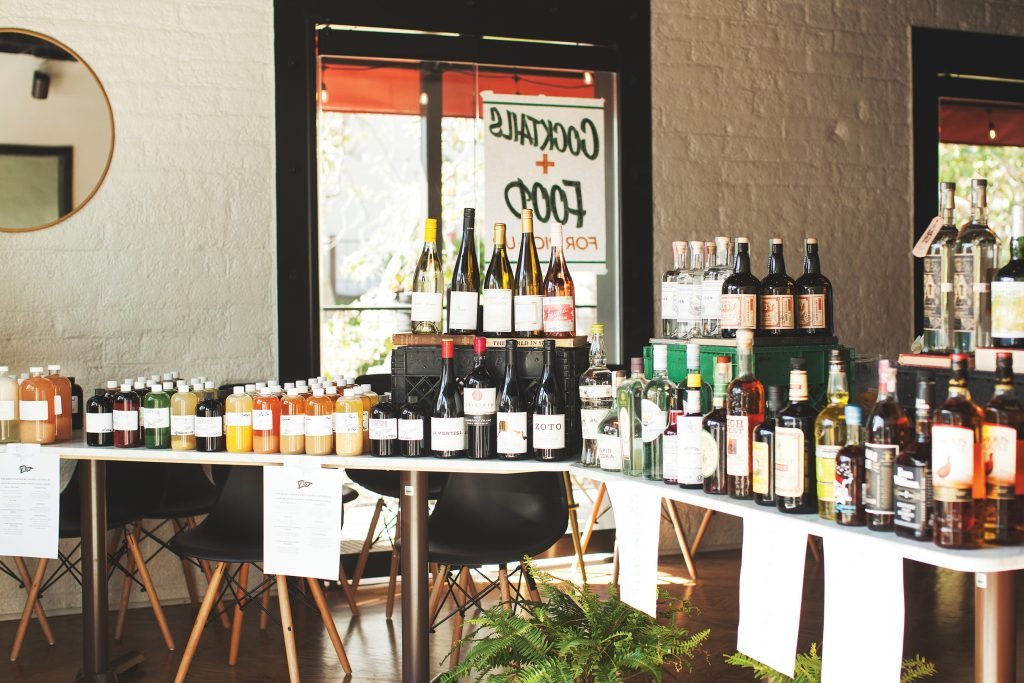

]Just around the corner, I spoke to Novo Restaurant & Lounge front of house director Samantha Welch about how an early morning idea changed everything for them. “We brought in deli coolers from storage, metro shelves were built and we had a few pantry staples available for sale. Today we have a fully stocked downtown market. Fresh produce from the farmers’ market, rice, beans, lentils, sauces, pasta, milks, cheese, frozen meats like ahi tuna, steaks, pork and Mary’s Chicken, to-go cocktails, even toilet paper.” While this pop-up market isn’t paying the bills, it is serving a need in the community, and knowing that keeps the team sane during this trying time.
If well-established restaurants like Novo and The Hatch are being forced to change their entire business models to survive these crazy times, what does that mean for a fledgling spot like Humdinger Brewing in Arroyo Grande? “We had plans to officially open our doors on St. Paddy’s Day,” executive chef Spencer Johnston laments. “We were planning for 300-plus people at our grand opening celebration.”

]Instead, county officials issued an order the day before, effectively shuttering restaurants and bars before the holiday. “I remember thinking, ‘we can’t sit on this inventory,’ so we changed our menu, altering the dishes for a to-go approach. The ABC [California Department of Alcoholic Beverage Control] allowed us to deliver beers. We are using Uber Eats, Grubhub and a few others. Thanks to our local community, we’re doing well for a new business, given the circumstances.”
Chef Spencer’s own catering company, Danior Kitchen, lost some $80,000 in revenue from the cancellation of events scheduled for the upcoming months. A gut punch, for sure. But necessity being the mother of invention, Spencer retooled Danior Kitchen as SLO’s first Ghost Kitchen. What’s a ghost kitchen, you ask? “Delivery only. Coming from fine dining, it’s interesting plating a beautiful dish in a to-go box. But we’re still feeding our people.” Ghost kitchens have no physical dining room, cutting costs associated with rent, maintenance and service. For an industry where almost no money is coming in, reducing the bleeding out of funds is necessary.
While distilleries aren’t as reliant on direct customer interaction — they are still able to ship bottles per usual, and folks can swing by and pick up with new precautions in place — they are feeling the crunch nonetheless. Steven Kroener of KROBĀR Craft Distillery shared with me that “our spirits sales have decreased about 30 percent compared to this time last year.
If not for the sanitizer, we probably would not have been able to stay open for more than two months. With two new facilities in SLO under construction and the loans we have taken out because of them, our funds would have been depleted extremely quickly to cover our obligations.” KROBĀR, along with other local and national distillers, began making and bottling much-needed sanitizer, a move that’s 50 percent altruism, 50 percent good business and, I’d say, 100 percent brilliant. Eric Olson, owner of Central Coast Distillery, inspired by the need to survive as well as provide aid to local first responders, also rose to the occasion. “Some of the challenges came with finding basics like bottles, or getting ingredients delivered. Even our vendors were trying to adapt to demands and new delivery schedules. But like life goes, you get into a rhythm and before long you’ve created a label that projected our brand, learning to balance projection with production.”
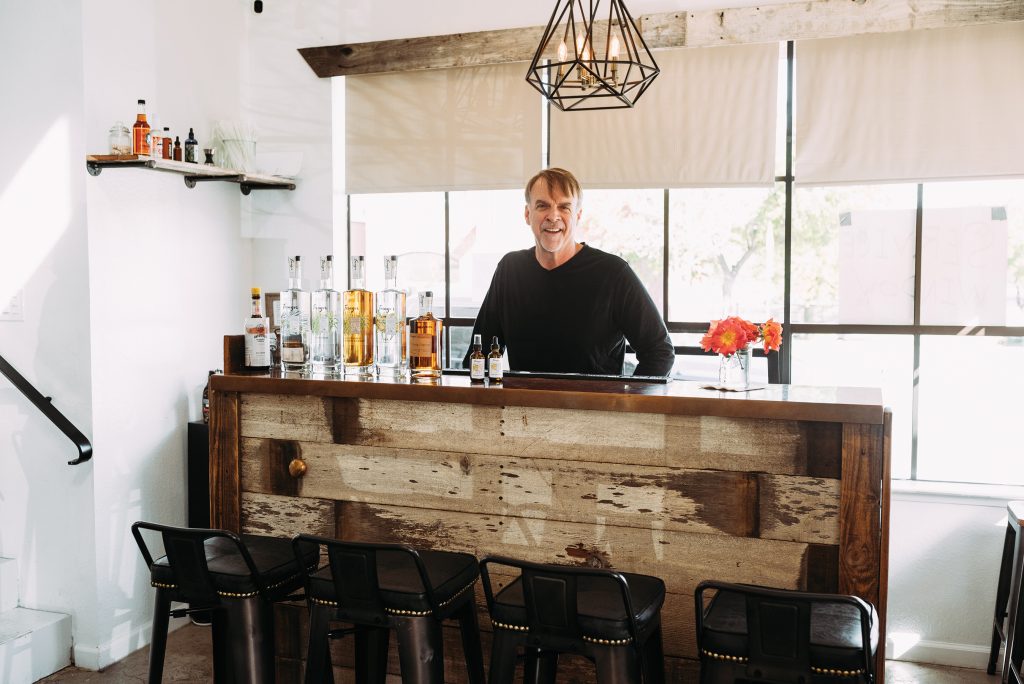
The week of March 15, 2020 is one I will never forget. It is the week I saw the industry that has been my home for two decades experience a paradigm shift that will leave ripples for some time. We don’t know when we will reach the other side of this crisis, or how exactly things will look when we do. But I do know this: What I once feared to be a death knell, I now hear as a call to arms in my community. My fervent hope is that we will look back and see that we answered that call with integrity, ingenuity and good old fashioned grit. As Steve Kroener said, “I do see some good coming out of this. Even though we are all practicing social distancing and staying in place, I see this bringing people together.” Fingers crossed that it’s with a cocktail in hand.
